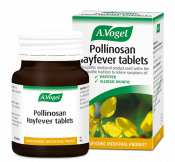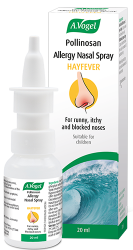Talking allergies
Whether your allergy is to animals, pollen, mould or dust mites, the body’s reaction is the same. When the immune system comes into contact with these things it sees them as a threat and so releases histamine in an attempt to fight them off. In this sense it over-reacts and as a result you are left to deal with symptoms like sneezing, a blocked nose, watery eyes and itchy skin.
Echinacea
This brightly coloured plant might be more often associated with cold and flu treatments but it can actually be beneficial for allergy sufferers too. That’s because Echinacea helps to strengthen the immune system and in doing so it helps to maintain the body’s resistance to allergens.
If you choose to fight allergies with Echinacea it is best to use a product where the plant has been freshly harvested. This prevents it from losing any of its beneficial properties during the production process which, in turn, makes it more effective.1
Here at A.Vogel we have a range of products made from freshly harvested and organically-grown Echinacea, including our Echinaforce Echinacea Drops which are easily absorbed by the body. Alternatively, we also have our Echinaforce Hot Drink with Echinacea and Black Elderberry which not only soothes a sore, itchy throat which is common during an allergy flare up, but it also has a pleasant taste too.
So, if you want to fight your allergy with something you haven’t tried before then Echinacea might be a good place to start.
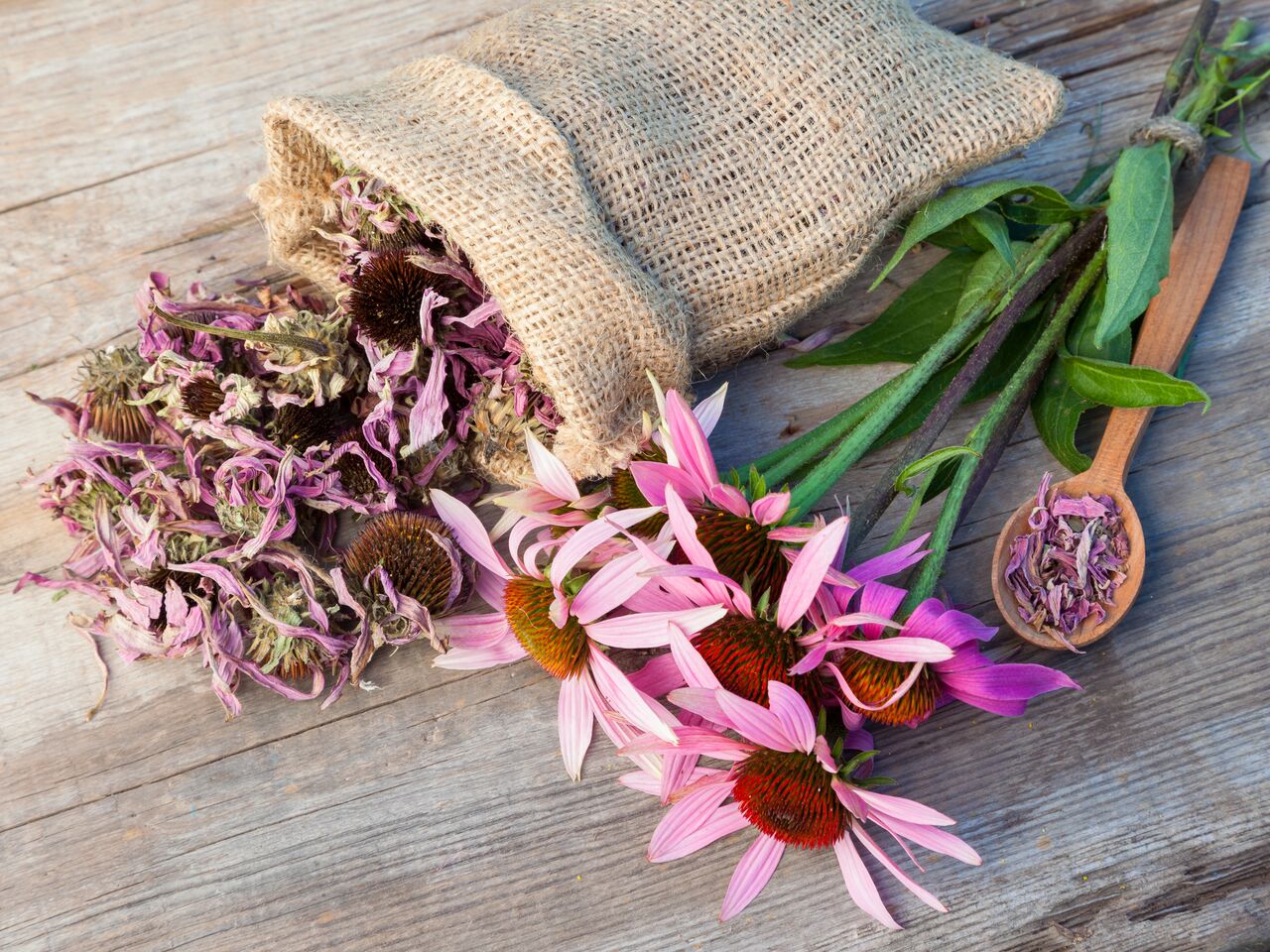
Acupuncture
Acupuncture is an ancient Chinese procedure that involves trained professionals gently placing thin needles under the skin at various points on the body. This may not sound all that pleasant but it has been shown to provide pain relief!
How does acupuncture relate to allergies though?
Well, a recent study looked at the effects of acupuncture on 422 people with a pollen allergy and found that symptoms actually improved after 8 weeks of this treatment. This was in comparison to two control groups, one of which only used antihistamines to treat their allergies and the other which received fake acupuncture treatments (needles were placed on random, non-meaningful spots on the body).2
There is still more research needed into whether or not acupuncture relieves allergy symptoms, especially when the allergen is something other than pollen. However, this research is a promising start and suggests that acupuncture may be worth investigating if you wish to find new ways of treating your allergy.
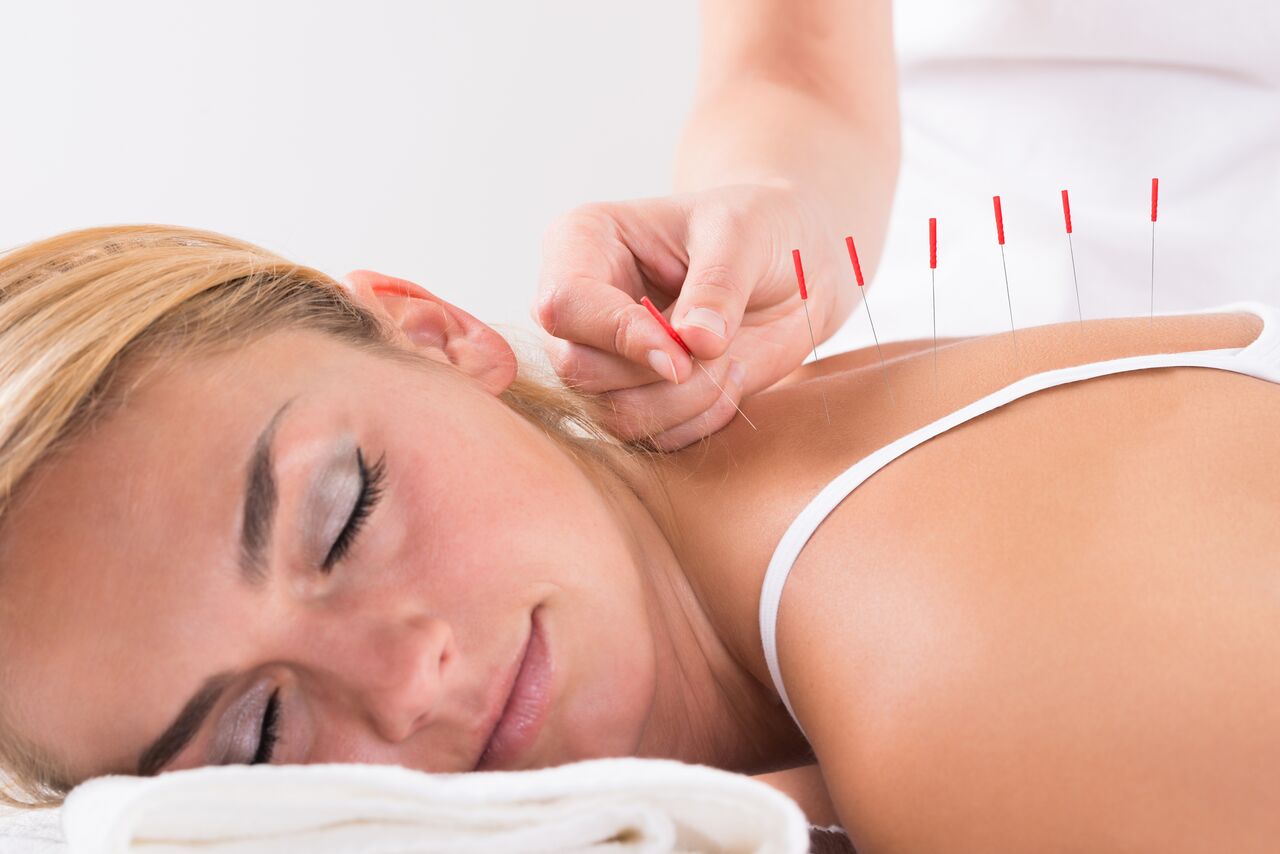
Euphrasia (Eyebright)
You may be unfamiliar with Euphrasia, or Eyebright as it is sometimes known, but this plant is used to treat a range of health problems, including allergies. That’s because it is has anti-inflammatory and antiseptic properties which help to relieve symptoms like a blocked nose, itchy skin and red eyes.
It is also fairly common for allergy sufferers to experience symptoms around the eyes including watering, itchiness or redness and so an effective treatment for these issues is essential. A natural option would be our gentle Moisturising Eye Drops with Euphrasia which provide quick and long-lasting moisturisation for the eyes. Not only does the Euphrasia provide anti-inflammatory properties here, but it also soothes the eyes which leaves them feeling refreshed and comfortable.
Herbal tea
As I discussed in ‘8 tasty drinks that could help allergic rhinitis’, herbal tea can prove to be very helpful if you’re suffering from allergies. The likes of nettle teas for example, are natural antihistamines meaning they could counteract the effect that histamine has on your body. As a result, this could reduce the severity of things like itchy skin or inflammation that is caused by the release of histamine upon contact with an allergen.
However, if this unusual flavour doesn’t take your fancy then the great thing about herbal tea is that there are lots of varieties to choose from.
Green tea is another natural antihistamine whilst chamomile tea could help with allergy symptoms related to inflammation. Also, peppermint tea is a natural decongestant meaning it could reduce the severity of nasal symptoms like a blocked nose, as well as blocked ears.
Vitamin C
Like some of these herbal teas, vitamin C supports the immune system and is also a natural antihistamine meaning it’s another good way to fend off your allergy symptoms. Oranges are the most well-known source of vitamin C but don’t forget that broccoli, strawberries and potatoes are also abundant in it too.
To maximize your vitamin C intake you may wish to try a natural supplement such as our Nature-C tablets. These are made from extracts of a wide variety of fruits including blackcurrants, lemon, passion fruit and gooseberry. This natural ingredient list is in contrast to many other vitamin C supplements which are made synthetically and means that the vitamin C is absorbed easily by the body.

Diet
As I discussed in my blog ‘Could diet be making your allergic rhinitis symptoms worse?’, what you eat and drink can go a long way in determining the severity of your allergy symptoms. The likes of caffeine and alcohol for example, contain high levels of histamine whilst refined sugars (fizzy juice, sweets, cakes) can turn on adrenaline which works to reduce the inflammatory effects of histamine.
You can still enjoy these in moderation but there are many allergy-friendly foods you could use to help fight the problem naturally as well. These include pineapples which contain a chemical called Bromelain that may help congestion and coughing. Also, another good option is fish and seeds with lots of omega 3 as this essential fatty acid contains anti-inflammatory properties.

Steam
If your allergy brings out nasal problems like congestion then steam could help because it loosens mucus which allows it to flow more easily from the nose. Also, steam contains moisture which soothes inflammation, an issue that can bring on congestion in the first place, as well as a sore throat.
To inhale steam place your head over a steaming bowl of water and breathe in gently. Alternatively, a warm shower or bath works well too.
Neem
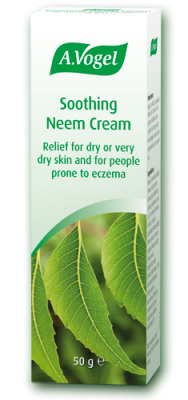 Skin rashes are another common problem amongst allergy sufferers which is where Neem, a type of plant, can come in useful.
Skin rashes are another common problem amongst allergy sufferers which is where Neem, a type of plant, can come in useful.
Our Neem Cream for example, soothes the skin to help ease irritation and redness. Like our Echinacea products, this cream is made from freshly harvested Neem so that the end product contains all the plant’s beneficial properties.
Other herbal remedies
Finally, our Pollinosan Hayfever Tablets are made from seven tropical herbs and provide relief from allergies. The great thing about this natural remedy is that it’s non-drowsy so it won’t affect how you go about your day-to-day life.
We also have our Pollinosan Luffa Nasal Spray for hayfever and allergies which cleanses the nose of allergens to leave it feeling more comfortable. This is great in cases where sneezing, a blocked nose and a runny nose are particularly prominent.
So, with all the information on our herbal remedies for allergies, with our diet tips and our home remedies as well, you should now be well-equipped to tackle your allergies naturally if you wish to give it a try.
1 Tobler M et al: Characteristics of whole fresh plant extracts. Schweizerische Zeitschrift fur GanzheitMedizin, 1994





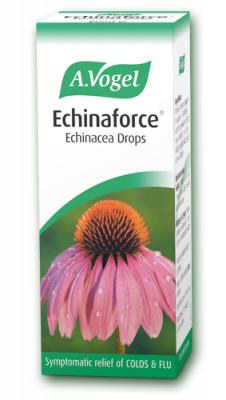
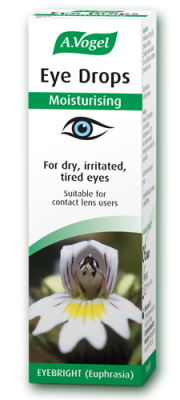
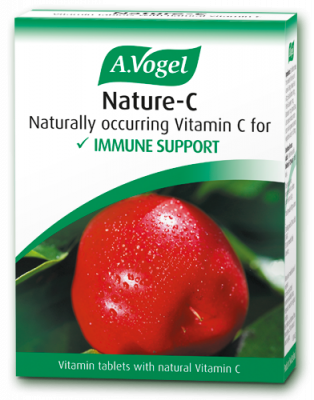
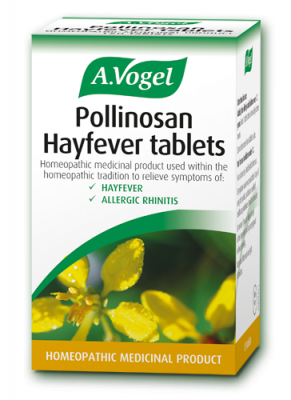
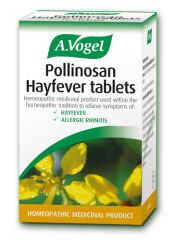 Looking for a solution to curb those hayfever symptoms such as itchy eyes, constant sneezing and congestion, then look no further than A.Vogel’s Pollinosan Hayfever tablets.
Looking for a solution to curb those hayfever symptoms such as itchy eyes, constant sneezing and congestion, then look no further than A.Vogel’s Pollinosan Hayfever tablets.
